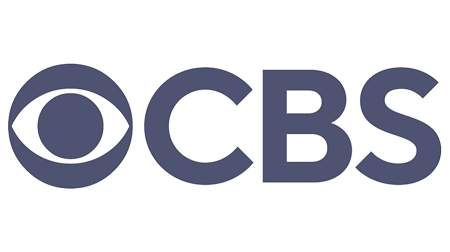Hope you are all doing well. The NASDAQ fell nearly 4%, snapping a six-week string of gains as several of the index’s mega-cap technology stocks slid for the second week in a row. The S&P 500 sustained a smaller weekly decline of around 2%, while the Dow was an outlier with a nearly 1% gain. Dr. Ruth passed away this week. I have broken down this week’s update using some of her notable quotes.

I talk about movement, about looking good, about taking risks.
Large cap growth has been moving higher and looking great for the last 18 months. Taking the risk associated with these stocks has for many of you produced real results. Large cap growth is starting to lose some of its lead. For the second week in a row, the U.S. small-cap stock benchmark outperformed by a wide margin, posting a 1.7% total return while its large-cap counterpart fell 1.8%. The Russell 2000 Index’s surge of 7.7% over two weeks was the clearest indicator of rotation.
The market is rotating toward market segments seen as being the biggest beneficiaries of potential interest-rate cuts. I still think the market will end up being disappointed as I don’t see the Federal Reserve cutting rates until maybe the tail end of the year. Furthermore, U.S. large-cap value stocks outpaced their growth counterparts for the second week in a row, chipping away at the growth style’s year-to-date performance leadership in another sign of a shift in market sentiment. Over the past two weeks, the value benchmark has risen a total of 3.5% versus a 4.3% decline for its growth counterpart. Are growth stocks still worth the risk? The answer to that hinges on how firmly you believe in AI and the continued growth of tech stocks.
The most important six inches are the ones between the ears.
Sometimes you need to use your brain and not just listen to your gut. The stock market has had a very nice run. It is not surprising to see investors “trust their gut” take some profit and rotate out tech stocks. Maybe we are in the middle of a massive sector rotation or it could be another false signal. Stocks prices move based on earnings and so pairing your brain with your gut you realize the run in tech stocks probably isn’t over.
We are only in the second week of quarterly earnings season. So far the reports have produced an uptick in expectations. Based on initial results and forecasts for upcoming reports, analysts on Friday were expecting S&P 500 companies to post an average second-quarter earnings increase of 9.7% compared with the same quarter a year earlier. Just a week earlier, the projected growth rate was 9.1%, and big tech has not reported yet. It’s entirely possible that the tech stocks continue their trend of out pacing the already elevated expectations.
If that happens then investors will come pouring back into tech and the sector rotation will be quickly undone. I believe we are only in the early stages of what AI is going to be and remain confident in the potential earnings growth of large cap tech stocks. I think the right thing to do is to stay with your tech stocks and possibly even add if they dip further.
I love being Dr. Ruth, so I have never thought of retiring.
Apparently the President feels the same way as Dr. Ruth. More and more Democrats are trying to push a defiant President Biden to retire. If Biden does pull out of the race, it is widely believed the party would back Vice President Kamala Harris as nominee. Biden is said to be mulling his options as he isolates with Covid-19. I fielded a lot of calls this week about the election and its impact on stocks. The reality is the President has very little impact on the stock market. I don’t like to talk about politics. However, enough are you concerned so I will address some of the issues that many of you have concerns about. To me there are three main issues where the President can impact the stock market. Dealing with foreign adversaries, the Federal Reserve, and trade.
(1) The two main adversaries every politician speaks about are Russia and China. Russia, is a country with an economy smaller than Italy’s and with a military that is getting all it can handle in Ukraine. Are they really an expansionary threat to the world? Even if Russia prevails in Ukraine it would still lack the economy to even be a threat to its NATO member neighbors, let alone the whole world. China is more concerning in that they have an economy quite a bit larger and dynamic than Russia’s. However there is a level of codependency. America and China need each other, but China’s economy needs the U.S. more than we need China. So it is unlikely China would pursue a war with the U.S. vis-à-vis Taiwan, and risk an economic collapse. The President will need to have a strategy that deter these adversaries from aggressive ambitions without draining our economy to do it.
(2) The Federal Reserve is independent but the President could remove the chairperson. The Federal Reserve is tasked with keeping inflation under control and maintaining a strong labor market. Chair Powell I feel has done a great job, both candidates have said publicly they would let him finish his term in 2026. Both parties have been calling for lower rates. The Fed doesn’t typically succumb to political pressure so I don’t see them doing that now. The President will only make a difference here if one of the candidates goes back on what they said and removes Powell and appoints a new Chair.
(3) Trade can impact the economy and therefore the stock market indirectly. For many years the goal was free trade. It was thought that free trade promotes the unrestricted flow of goods and services across borders by removing barriers to trade. As such it would lead to economic growth, efficiency, and consumer benefits. However post NAFTA protectionism has gained popularity. Protectionism seeks to shield domestic industries from foreign competition by imposing trade barriers. This can take the form of tariffs, which are taxes on imported goods, or non-tariff measures like quotas. Protectionist policies are often implemented to safeguard domestic employment, industries, and national security interests. Neither strategy has a direct impact on stocks unless there is a trade war. If the President raises tariffs against one particular country it can cause that country to raise taxes on American goods. Trade wars like the one we experienced with China 5 years ago cause short term volatility but are unlikely to really have long term impact on stocks.
If you’d like to speak about your investments or your plan, my calendar link is below and you can schedule a phone or zoom appointment.





